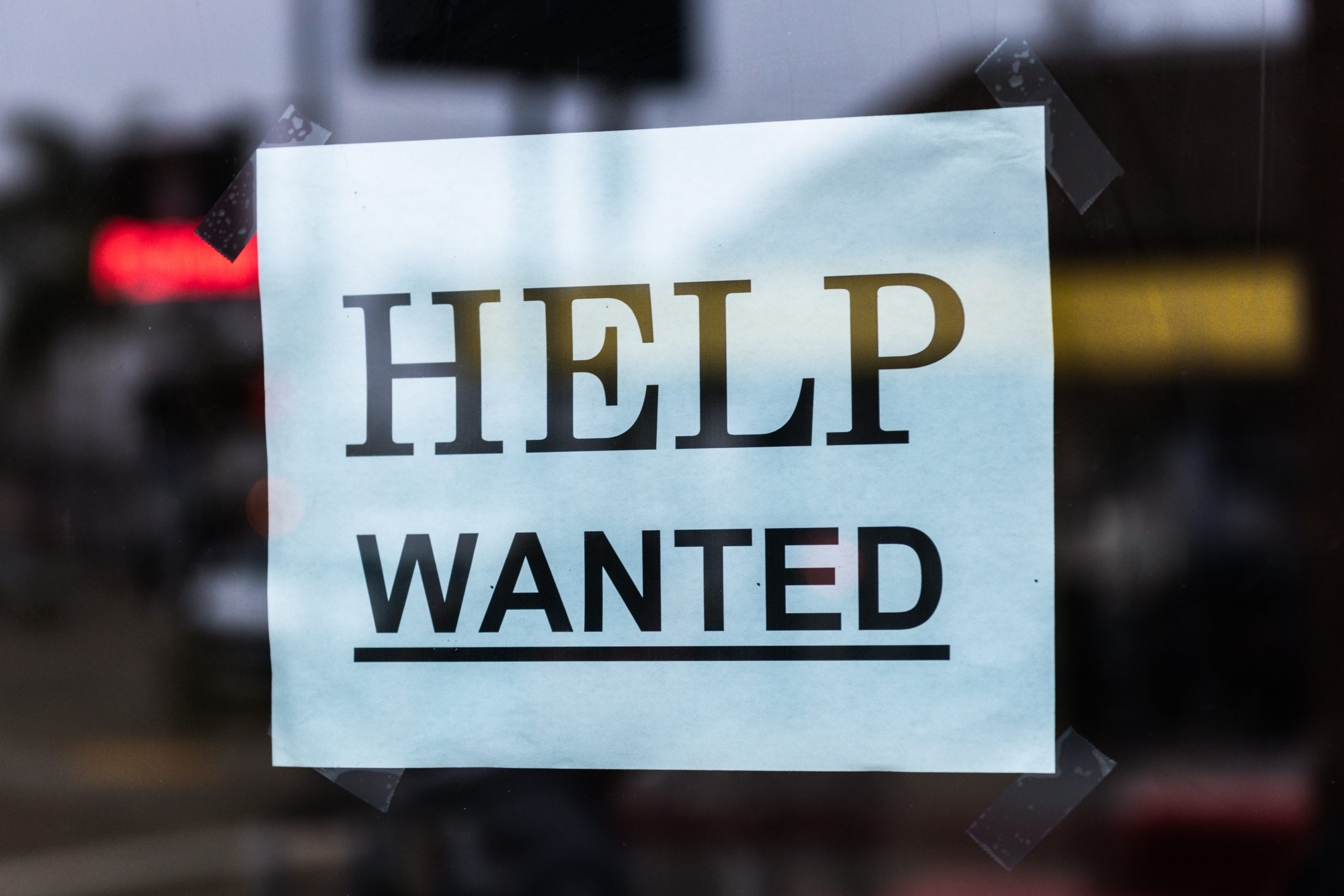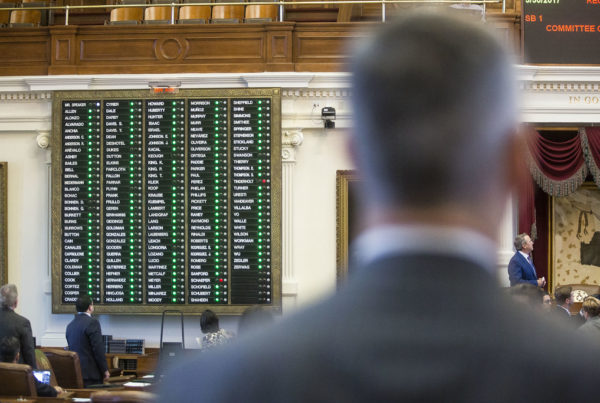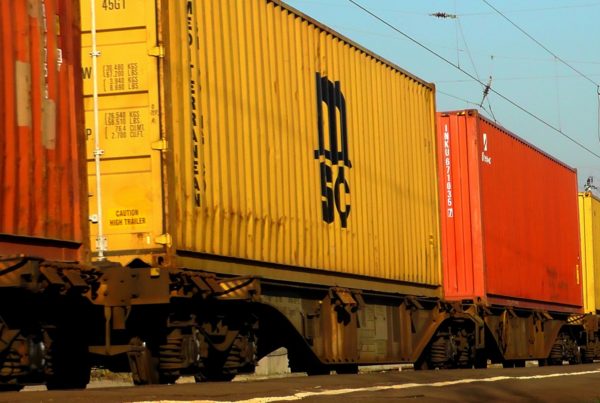The Bureau of Labor Statistics announced today that the American economy added more than 260,000 new jobs in November – a positive sign amidst looming economic uncertainty.
At the same time, hundreds of thousands of jobs in the United States are still unfilled, a development that’s felt especially in Texas, where job openings reached an all-time high of a million.
That large number of openings makes Texas one of only eight states in the country to increase its number of job openings for the month of September, the latest available data.
Mick Normington is a labor economist and teacher at Lee College based in Baytown, Texas. He joined the Texas Standard to help make sense of the Lone Star State’s dynamic labor market. Listen to the story above or read the transcript below.
This transcript has been edited lightly for clarity:
Texas Standard: To start off with, let’s zoom in on Texas. Give us a sense of which industries we’re seeing these job openings, and especially as we hear all these stories about layoffs in the tech sector and such.
Mick Normington: Well, obviously, the big ones are going to be the big industries in Texas, which is going to include hospitality, transportation, manufacturing. You are correct, we are seeing quite a few layoffs in the technology sector. We don’t know if that’s a sign of a recession or not, but Texas is really standing out and continues to stand out, not just because of what you were talking about with the new job openings, but a lot of new hires are happening and the quit rate is dropping quite a bit here in Texas.
What do you think accounts for a drop in the quit rate?
We’ve been in this period of what we call the Great Resignation, where workers have gotten burned out and frustrated with their bosses and their paychecks. And so Texas has been ground zero for quitting your job in America for the last 18 months. It still is. We still lead the country in quitting your job for a variety of reasons. I mean, just to be frank, I think the biggest reason is when some people quit their jobs, it puts more pressure on the remaining employees and supervisors and that burns them out faster.
Sort of has a spiraling effect, I guess.
Yeah, a downward spiraling effect. It really frustrates a lot of people. And for better or for worse, we’re in a very dynamic economy here in Texas. We’re creating a lot of new jobs. We still lead the country in creating new jobs. In September, 555,000 people started a new job here in Texas, by far the number one state in America. But it also creates frustration.
You know, for all of the positive signs that we’re sort of emphasizing here, I note something. Texas’ unemployment rate’s been hovering around 4%, but that’s actually a little higher than the unemployment rate for the nation, which the Labor Department reports today was steady at 3.7%. How is it that you can have all this growth, new job openings and such and still that unemployment rate higher than the national average?
Well, we’ve got more people moving to Texas and moving to Texas without a job and looking for a job. That’s going to be one of the biggest factors. Secondly, I hate to go back to it, but we are number one in quitting your job – in telling the boss that you’re firing your boss. So people are quitting their jobs before having another job lined up. So you can think about it as a lot of Texans are quitting their job to move on, hopefully to a better job with a better boss or a better paycheck or a better location. Or better coworkers. But that’s going to be a big factor as well. Nevertheless, a 4% unemployment rate is very low. One of the big things that I see is two years ago at this time, 13 million people were working in Texas. Now 14 million people are working in Texas. It’s a very dynamic economy.
But when you have that number of job openings, I mean, that’s got to make many businesses struggle. I mean, it sounds like great news that you have all these openings. And for many workers, I can imagine why that would be good news. On the other hand, when you have those openings, it prevents businesses, especially small businesses, from being able to scale up.
It’s a terrible time to be a manager in Texas or in America, but especially in Texas. There is a lot of churn going on, a lot of workers coming, a lot of workers going. Again, we’re in this period of what we call the Great Resignation Era where a record number of people are quitting their jobs. And I mean, just to be frank, if you were a supervisor having to hire, recruit, train and get somebody up to speed – that’s expensive, a lot of your time. It takes up a lot of your time. It’s very frustrating. This is probably one of the worst times to be a manager in America.
Could this have an adverse effect on the Texas economy long term if those jobs aren’t filled?
Well, eventually jobs get filled. Eventually, supervisors raise the pay or they start treating the workers better, or they change the rules or they change the working hours. Eventually, economics works itself out, even at a small business, even at big businesses. But this continues to be a problem. The quit rate I keep pointing out is, you know, 2.6% of all workers in Texas have been quitting their jobs, which is actually better than it was over the last 18 months. It’s slowing down a little bit.
What do you tell someone looking for a job in Texas right now? I mean, are they in the catbird seat, as it were?
Yes, it’s a worker’s market, if you will. But the quit rate is coming down a little bit. So what we’ve been seeing over the last couple of years is essentially pay has been going up by about 6% a year and inflation has been going up a little bit more than 7%. But we are seeing that the Great Resignation era is probably starting to taper off and might be coming to an end soon. So if you want a raise, you’d better be asking for a raise now.















